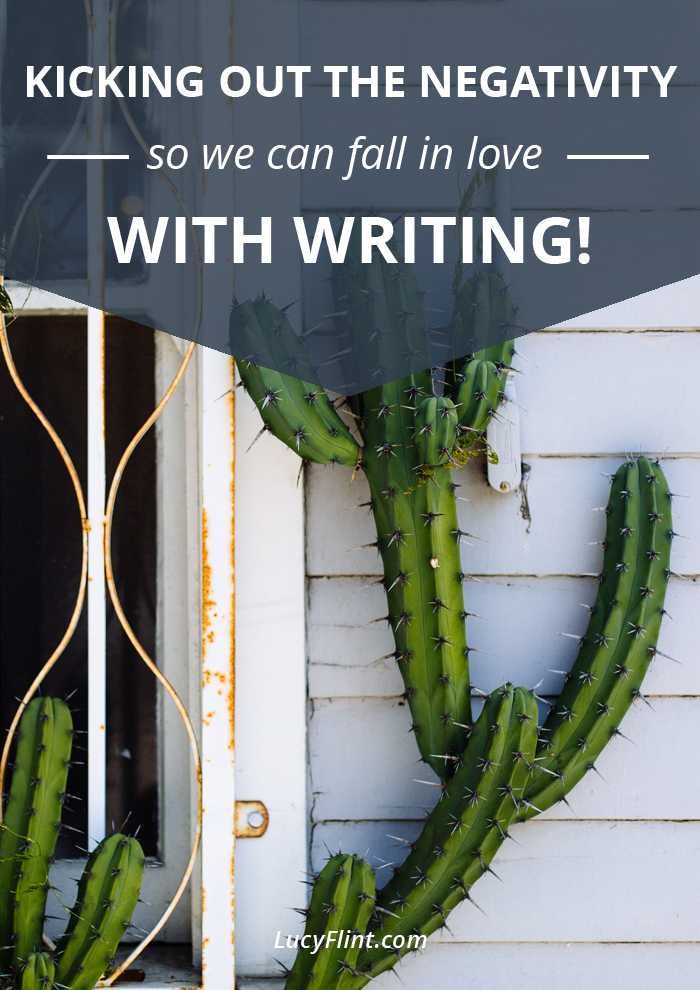Day Four of the new year: How's 2016 treating you? And how does that list of resolutions look?
Are they still exciting? Still inspiring? What are your plans for these next twelve months?
I have some big ones. And the biggest is: I want to publish Book One of my trilogy by the end of this year.
(Holy crap, did I just say that out loud.)
No matter what. Come what may. In spite of all the dissenting voices in my head.
It's time, and it's happening, and by the last day of 2016, that book will be for sale, y'all!!
I am super excited, and yes, a bit daunted. Right now the novel is in teeny tiny pieces taped to my wall. So I have a bit of a challenge on my hands.
But I've also realized this: I want to relish this process. I want to actually enjoy the road to publication.
I don't want to drag myself through these next twelve months as a nervous wreck. Whining. Complaining. Venting all my fears.
I've tried those strategies for weathering challenges before, and I have to say: I'm not a fan.
Chocolate, dance parties, not taking myself toooo seriously, and laughing: those are my preferred strategies for 2016.
So this January, I want to psych myself up. I want to think about what it looks like to love a challenge: even a really big one like "publishing the beloved first novel."
What's going on inside ourselves when we're totally up for something big? How do we weather a challenge with grace? And still have enough grit and fire to get the thing done?
I did a bit of digging and came up with six things that are all functioning when a challenge is handled well.
1.) Get all that sleep.
It's an obvious one, but when I'm knee-deep in a challenge, sleep is the last thing on my mind.
I need to stop messing around when it comes to getting a real eight-hour rest. It's good for the body, sure, but it's also incredibly good for our minds. And we writers want both to flourish, right?
Not to mention: emotional health. There's a lot less drama (shrieking, wailing, naysaying) in my head and heart when I've had enough sleep.
Getting enough energy for our bodies, minds, emotions: That's step one. And then we can bring all that power to bear on our challenge of choice.
2.) Take the ability to focus up a notch or two.
After reading The One Thing, I've become allergic to multitasking. Seriously.
It seemed like I was always trying to do two or three things at once: Carry on a texting conversation while reading a book while checking in on Twitter. Watching a movie while researching a few things on my phone. Listening to a podcast while making dinner while having a conversation.
I felt like I was doing so many things, and nothing well. Ack.
The decision to do only one thing at a time has been huge. It sounds so small, but the change in my head is amazing. So much more ability to get something done.
And if we're facing big challenges this year, why go about it with a totally diffused focus? With scattershot energy?
Try it. Give yourself a little dare. Do only one thing at a time. Step back from the noise, put away your phone, pause the music, and devote all your attention to just one thing.
And see what happens.
3.) And while we're focusing: don't over-challenge yourself.
It's so easy for me to want to overhaul my whole life, all at the same time.
Seriously. The last few weeks, I've been jotting down dozens of challenges and mini-challenges and goals and new habits.
It's easy to go wild, to want to do everything, to make it all new. A fresh start. But that's one of the quickest and saddest ways to burn myself right out.
So the other side of focus is: Try to limit the number of challenges you're giving yourself.
I am far more successful when I scale it back and try one major challenge at a time.
Or, if I have to try two or three big things at once, I keep them in separate arenas: One health challenge, one work challenge, one lifestyle change.
4.) Don't forget to play.
When I'm starting something new, my terrified little brain will overthink. And overplan. And then overschedule the overplan. I will try to cover every single base, months (okay, okay, even years) in advance.
The funny thing is: I don't actually love to implement that overscripted plan. In spite of all the work that went into planning, that final arthritic schedule makes me a little nauseous.
I need to leave room to play. Room for spontaneity, even in the midst of a serious challenge.
Blanks to fill in "when I get there." Room to grow, to discover, to explore.
It can seem counterintuitive in the planning stage, but a bit of room in a challenge keeps me flexible (a valuable skill in itself!).
It helps me recover when my thinking has backed me into a corner. And it gives me the space to solve the new problems that come up (because they totally will).
How can you leave some room in your 2016 plans for a chance to discover? A chance to play with ideas a bit, a chance to incorporate information that you find along the way?
Can you leave some dots unconnected? A little wiggle room?
5.) Make space in your life for the challenge. And protect that space.
This sounds like a no-brainer, but I can't tell you how many times I charge into a big plan only to realize that it will take way more time than I guessed.
There are hidden parts to any challenge that take extra logistics, extra thinking, extra energy.
(If you've ever had a mega computer malfunction in the midst of a writing deadline, then you're totally with me on this point.)
What has helped me so much in the last few months is clearing more space than I thought I needed. (Guess what. I totally needed it.)
We writers need a bit of solitude for our brains to sink into ideas. We need a bit of free space in our lives, space for ideas and thoughts to breathe a little.
If you're aiming at something big in 2016, give yourself permission to clear the clutter from your life. The small nagging commitments, the extras that might have crept into your days.
Don't try to fill up every minute.
Get yourself out of anything you don't need to be doing. Give yourself a lot of room. More room than you think you might need.
6.) Find the deeper purpose.
I can't make an aimless challenge stick. Doing something "just because" has never worked out very well for me.
The resolutions and habits that have actually stuck, have done well, have lasted: they've always had an extra purpose to them.
They're always solving something at a deep level.
I used to think that "proving myself" was a good enough reason to write. That I could write "because I was good at it," or even "to earn money."
The last few years have shaken and kicked those ways of thinking right out of me.
I'm writing harder than ever, but with a totally different motivation.
I flat-out adore my characters, for one thing. They've taught me so much about the kind of human I want to be, about the family I want to have, about the changes I want to see in the world.
Telling their story has been such a privilege and a joy for me: and also a ridiculously good time. And so, yeah: I want to share that with people.
But also, this: being eleven years old totally sucked for me. It just did. It was a low point. ... Which is why I can't even tell you how happy it makes me to write a book for eleven-year-olds.
A book about bravery, about fighting hard for what you love, about family, about adventures. About finding out that you are a bigger person than you ever dreamed.
That kind of book.
It's a way of going back and doing something good about a tough time in my life. It's a way of solving something. Fixing something.
It used to be that I just wanted to prove all the naysayers wrong, and publish a whole bunch of books, and live happily ever after with my bestsellers.
Now it's about love. Loving the work, loving my eleven-year-old self, loving the kids who are that age now.
Maybe that sounds soppy, but it's a much bigger, deeper, and more constant motivator for me than having some kind of credit by my name.
So what does that look like for you? What's the purpose behind the challenge you're facing? What's the real point of the story you're writing? What are you really trying to do?


















